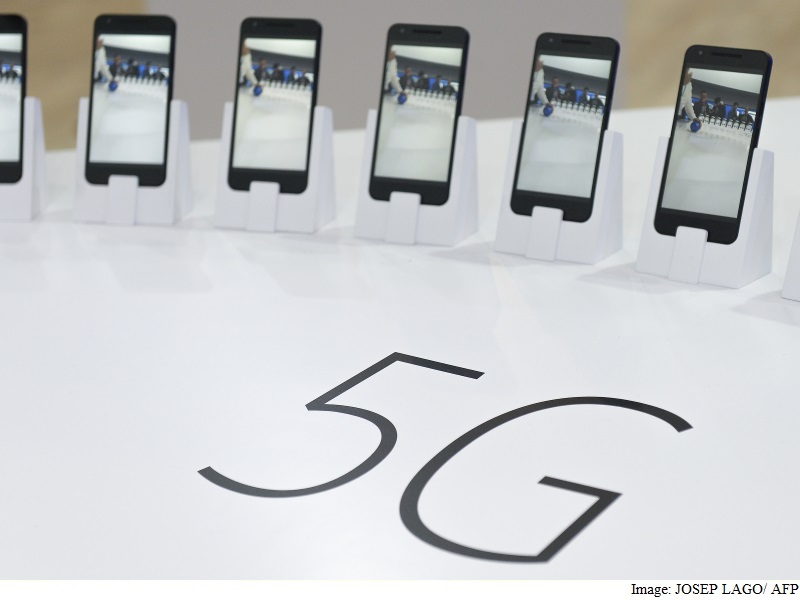- Home
- Telecom
- Telecom News
- Indian, New Zealand Researchers to Study Health Impacts of 5G Networks
Indian, New Zealand Researchers to Study Health Impacts of 5G Networks
By Indo-Asian News Service | Updated: 30 June 2016 10:18 IST

Advertisement
Researchers from New Zealand and India will jointly investigate the possibilities of adverse effects of electromagnetic radiation on human health caused by the next generation of telecommunication networks called 5G, a New Zealand researcher said in a statement on Wednesday.
Massey University will collaborate with India's Birla Institute of Technology and Auckland University of Technology on the project 'Analysing Harmful Electromagnetic Exposure due to Future Millimeter Wave Transmissions' over 2016-2017.
"If the future wireless signals are found to be harmless to the human health, this project would build consumer confidence in the future telecommunication services. However, if this project shows that the 5G network leads to, or potentially may lead to adverse health impacts, the industry would be required to modify the underlying wireless technology to ensure the human well being," principal investigator Faraz Hasan, School of Engineering and Advanced Technology, Massey University, said in the statement.
This project seeks to develop new techniques that allow the assessment of 5G wireless signals and their electromagnetic exposure to human beings. The findings will be compared against the existing thresholds that have been set aside by a number of regulatory bodies.
"With some industry giants predicting 50 billion connected devices by 2020 and with the employment of much higher transmission frequencies proposed for the 5G rollout, it is essential to determine how the future of telecommunications will affect the health of its user," Hasan said.
This research is one of the externally funded projects currently being carried out by the Telecommunication and Network Engineering research group under the Electronics Cluster at Massey University.
Massey University will collaborate with India's Birla Institute of Technology and Auckland University of Technology on the project 'Analysing Harmful Electromagnetic Exposure due to Future Millimeter Wave Transmissions' over 2016-2017.
"If the future wireless signals are found to be harmless to the human health, this project would build consumer confidence in the future telecommunication services. However, if this project shows that the 5G network leads to, or potentially may lead to adverse health impacts, the industry would be required to modify the underlying wireless technology to ensure the human well being," principal investigator Faraz Hasan, School of Engineering and Advanced Technology, Massey University, said in the statement.
This project seeks to develop new techniques that allow the assessment of 5G wireless signals and their electromagnetic exposure to human beings. The findings will be compared against the existing thresholds that have been set aside by a number of regulatory bodies.
"With some industry giants predicting 50 billion connected devices by 2020 and with the employment of much higher transmission frequencies proposed for the 5G rollout, it is essential to determine how the future of telecommunications will affect the health of its user," Hasan said.
This research is one of the externally funded projects currently being carried out by the Telecommunication and Network Engineering research group under the Electronics Cluster at Massey University.
Comments
For the latest tech news and reviews, follow Gadgets 360 on X, Facebook, WhatsApp, Threads and Google News. For the latest videos on gadgets and tech, subscribe to our YouTube channel. If you want to know everything about top influencers, follow our in-house Who'sThat360 on Instagram and YouTube.
Related Stories
Popular on Gadgets
- Samsung Galaxy Unpacked 2025
- ChatGPT
- Redmi Note 14 Pro+
- iPhone 16
- Apple Vision Pro
- Oneplus 12
- OnePlus Nord CE 3 Lite 5G
- iPhone 13
- Xiaomi 14 Pro
- Oppo Find N3
- Tecno Spark Go (2023)
- Realme V30
- Best Phones Under 25000
- Samsung Galaxy S24 Series
- Cryptocurrency
- iQoo 12
- Samsung Galaxy S24 Ultra
- Giottus
- Samsung Galaxy Z Flip 5
- Apple 'Scary Fast'
- Housefull 5
- GoPro Hero 12 Black Review
- Invincible Season 2
- JioGlass
- HD Ready TV
- Laptop Under 50000
- Smartwatch Under 10000
- Latest Mobile Phones
- Compare Phones
Latest Gadgets
- Redmi Turbo 4
- Vivo Y200+
- Lava Yuva 2 5G
- OnePlus Ace 5
- OnePlus Ace 5 Pro
- Oppo A5 Pro 5G
- Vivo Y29 5G
- Honor Magic 7 RSR Porsche Design
- Asus Zenbook S 14
- MacBook Pro 16-inch (M4 Max, 2024)
- Honor Pad X9 Pro
- Honor Pad V9
- boAt Enigma Gem
- boAt Enigma Daze
- Sony 65 Inches Ultra HD (4K) LED Smart TV (KD-65X74L)
- TCL 55 Inches Ultra HD (4K) LED Smart TV (55C61B)
- Sony PlayStation 5 Pro
- Sony PlayStation 5 Slim Digital Edition
- Blue Star 1.5 Ton 3 Star Inverter Split AC (IC318DNUHC)
- Blue Star 1.5 Ton 3 Star Inverter Split AC (IA318VKU)
© Copyright Red Pixels Ventures Limited 2025. All rights reserved.

















